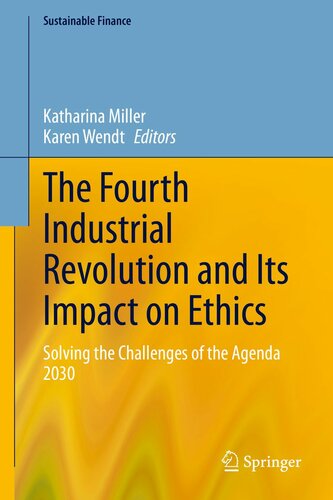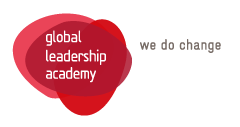The Fourth Industrial Revolution and Its Impact on Ethics
Solutions for the Challenges of the Agenda 2030
Revolutions and upheavals are constant and recurring phenomena since human communities have existed. We are currently in the era of the so-called "Fourth Industrial Revolution” (4IR), a neologism coined by Klaus Schwab in 2015, defining Fourth Era technologies as robotics, artificial intelligence, nanotechnology, quantum computing, biotechnology, the internet of things, the industrial internet of things (IIoT), decentralized consensus, fifth-generation wireless technologies (5G), 3D printing, und fully autonomous vehicles.
Edited by community member Katharina Miller and Karen Wendt the volume examines the effects of the 4IR on human coexistence and ethics, with 29 authors, who come from 14 different countries and four different continents. Among the contributers were also GLAC community member Kathrin Tietze on "Beyond Gender: From Individuals to Structures" and Wiebke Koenig.
Following up on the findings of the 17th Congress of the European Women Lawyers Association on 4IR and Ethics from a Legal Gender Perspective in December 2019 the authors place questions of distribution and justice in and for our society at the centre of their contributions. This is why Agenda 2030 offers an ideal framework for the book: For the 17 sustainability goals, which were agreed by 193 countries on 25 September 2015, aim to establish equal rights between people, protect our earth and guarantee prosperity.
As European lawyers, the members of the European Women Lawyers Association (EWLA) subscribe to to the following goals:
- It is important to us as we female lawyers have to deal with the topics of the 4IR and implement this from different perspectives.
- We need to learn to look beyond our legal texts, leave our comfort zones and interact with engineers, investors, start-up managers, and others.
- Our society needs proactive women lawyers who propose regulations or who set up a start-up or invest funds themselves.
"Innovation studies do not generally take into account or explicitly seek out the views of women about innovation processes or their roles in innovation, and they do not consider the possibility that women’s and men’s contributions to innovation may differ."
Nicola Crowden, Women's Advisory Group on Innovation Studies,
Centre for Policy Research on Science and Technology, Simon Fraser University
Content
This book tackles the ethical problems of the "Fourth Industrial Revolution" (4IR) and offers readers an overview of the ethical challenges connected to Artificial Intelligence (AI), encryption and the finance industry. It specifically focuses on the situation of females in these industries, from women lawyers, judges, attorneys-at-law, investors and bankers, to portfolio managers, solicitors and civil servants. As the 4IR is more than "just" a technology-driven transformation, this book is a call to policymakers and business leaders to harness new technologies in order to create a more inclusive, human-centered future. It offers many practical cases of proactive change agents, and offers solutions to the ethical challenges in connection with implementing revolutionary disruptive products that often eliminate the intermediary. In addition, the book addresses sustainable finance in startups. In this context, education, training, agility and life-long learning in financial literacy are some of the key solutions highlighted here. The respective contributors supply a diverse range of perspectives, so as to promote a multi-stakeholder approach.

